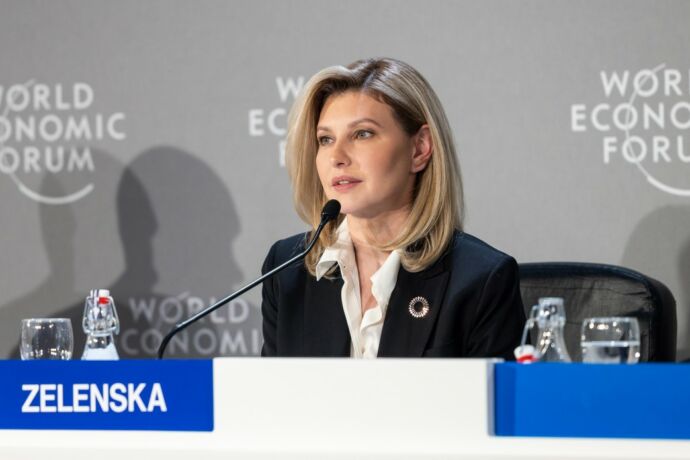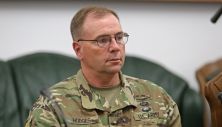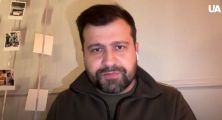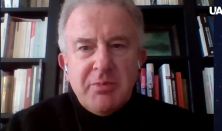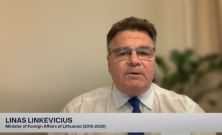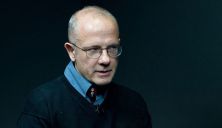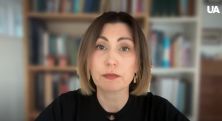First Lady of Ukraine Olena Zelenska took part in the CEO’s for Ukraine panel discussion held at the World Economic Forum in Davos, Switzerland.
Prime Minister of Ukraine Denys Shmyhal and First Deputy Prime Minister – Minister of Economy Yulia Svyrydenko joined the conversation.
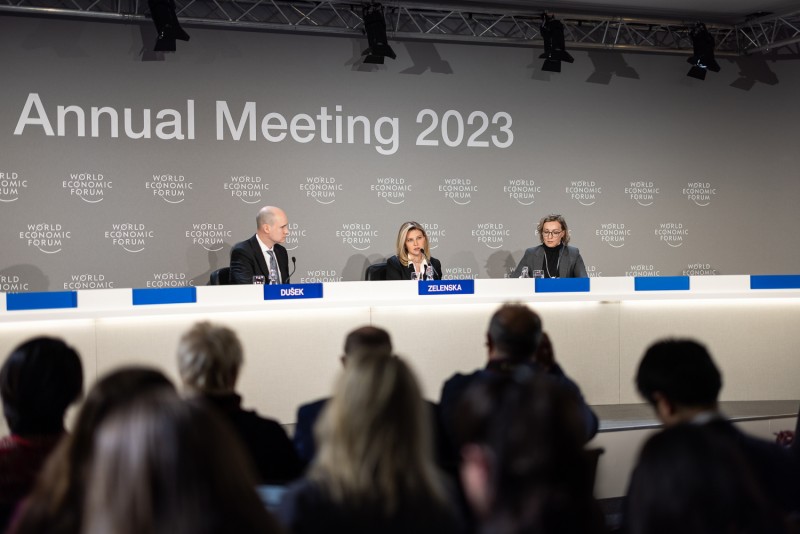
The President’s wife spoke about the humanitarian sphere in which Ukrainians need support from the business and political community of the world. She emphasized that although the forum is economic, she will primarily focus on the protection and enhancement of human capital.
“The word ‘human’ is in the first place here for a reason. First, human, then capital. Humanity comes first. Values come first. And when we tell the world about protecting our country and rebuilding after hostilities, we mean, first of all, protecting people and restoring normal life for them as much as possible,” the First Lady said.
Olena Zelenska informed about the main areas of Ukraine’s reconstruction, which the Olena Zelenska Foundation created by her is working on: assistance to the frontline areas that have suffered the greatest destruction of infrastructure, restoration of the Izyum hospital, and support for sustainable education process together with the European Commission. The First Lady also presented a new project launched under the auspices of her Foundation – the construction of model housing for family-type orphanages. She said that before the full-scale invasion, there were 1297 such orphanages in Ukraine, but some of them were forced to evacuate and lost their homes, while others are at constant risk.
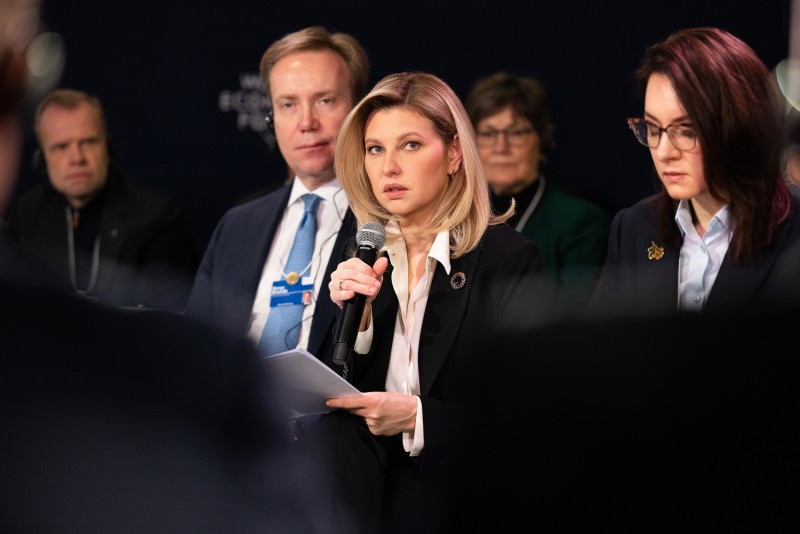
“We are looking for funding and model designs for houses that can accommodate up to 10 children and 2 foster parents. We have already received more than 1,200 applications from Ukrainians who have expressed a desire to adopt a child right now, in times of war, and have undergone appropriate training. And this project is an opportunity for everyone in the world to contribute to saving lives,” the President’s wife noted.
After the discussion, Olena Zelenska held a press conference for a number of global media. She emphasized that she was grateful to the Davos Forum for the opportunity to talk about the prospects for Ukraine’s future in terms of preserving and restoring human potential.
“No restored building has any meaning without a person,” the First Lady is convinced.
In addition, on Thursday, Olena Zelenska met with Minister of Defense of the Netherlands Kajsa Ollongren. The President’s wife thanked the Netherlands for its continued support in the fight against Russian aggression – the Netherlands has become one of the world leaders in providing military, financial and humanitarian assistance to Ukraine, imposing sanctions against the aggressor, and bringing Russia to justice for its crimes.
The First Lady noted that, given the high risks of renewed offensive actions and escalation by Russia, Ukraine needs immediate military support. The interlocutors also discussed the upcoming meeting in the Ramstein format to be held on January 20. It is extremely important that Ukraine receives positive decisions on meeting its key weapons needs following the Ramstein.
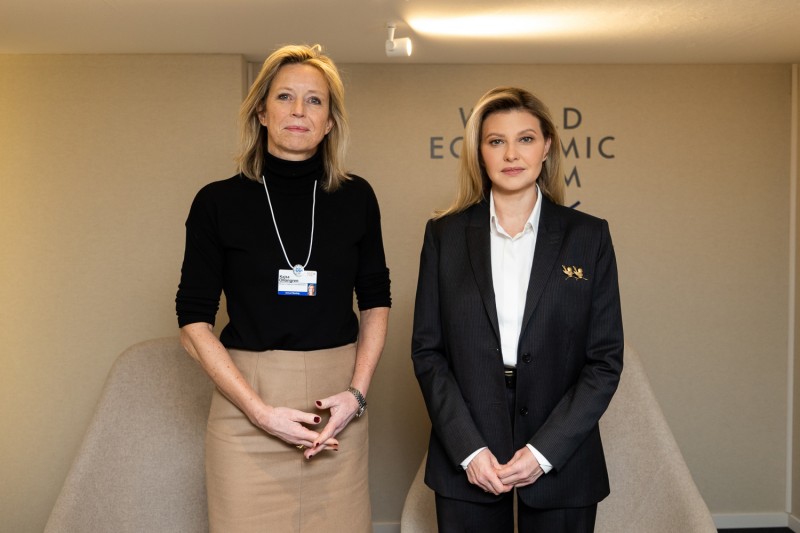
“Thank you for your words of gratitude, but it is our duty to help. We are doing what we can and will continue to do so,” said Kajsa Ollongren.
For her part, Olena Zelenska thanked the Netherlands for the treatment and rehabilitation of more than 60 Ukrainian servicemen and expressed hope that such important assistance from the Dutch government would continue.
Cultural cooperation was a particular focus of the conversation. In 2023, the Dutch state budget has reserved a total of EUR 2.5 billion to help Ukraine. Part of the funds will be used to preserve cultural heritage and support the cultural sphere of our country. In particular, the Okhtyrka Museum of Local Lore, Chernihiv Youth Library, and the Bohdan and Varvara Khanenko National Museum of Art have already received assistance. The institutions were able to prepare their exhibits and buildings for the winter period and start developing plans for future restoration work.

